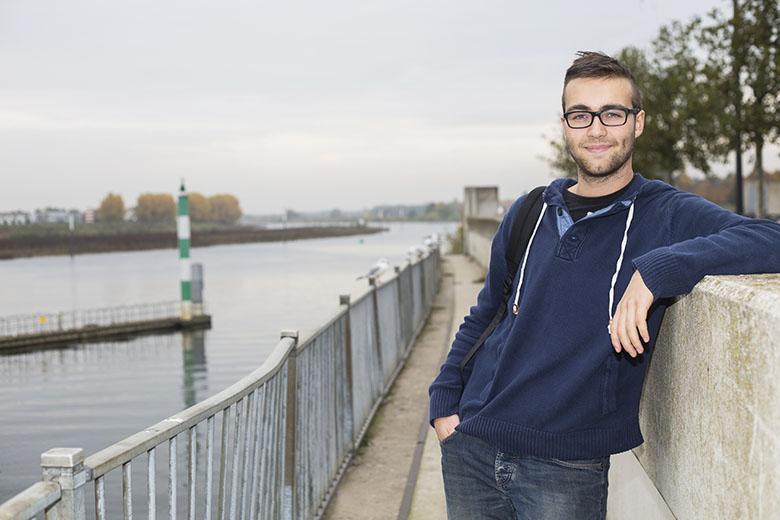International learning environment
At Maastricht University (UM), students get the opportunity to develop themselves as global citizens—individuals who can make a positive contribution to society, both locally and globally. We offer a culturally diverse, inclusive learning environment where differences in ideas, perspectives and backgrounds enrich the learning process.
In our international classroom, over 50% of our students and 40% of our academic staff come from abroad, representing more than 100 countries. Additionally, we welcome more than 1,000 international exchange students each year, and around 40% of our students gain international experience through study abroad programmes. This makes us the most international university in the Netherlands.
PBL in an international context
With our Problem-Based Learning (PBL) approach, students to work together in small groups to solve real-world problems. Since our groups often include members from all over the world, a vast array of perspectives is introduced in the discussions.
Our students challenge each other to look at their perceptions from different angles, recognise and question their assumptions, and explore a variety of approaches to each problem. This leads to increased cultural awareness, enhanced creative thinking and the development of innovative solutions.
Global Citizenship Education
At Maastricht University, we integrate Global Citizenship Education (GCEd) into the curriculum, encouraging students to reflect on their social responsibility and consider how they can address societal challenges.
GCEd, Problem-Based Learning and our international classroom complement each other and create a learning environment where students develop the knowledge, skills and attitudes needed to collaborate effectively in international teams and compete in local, regional or global labour markets. Students become critical thinkers who can make meaningful contributions to solving the complex problems we are facing in the world.
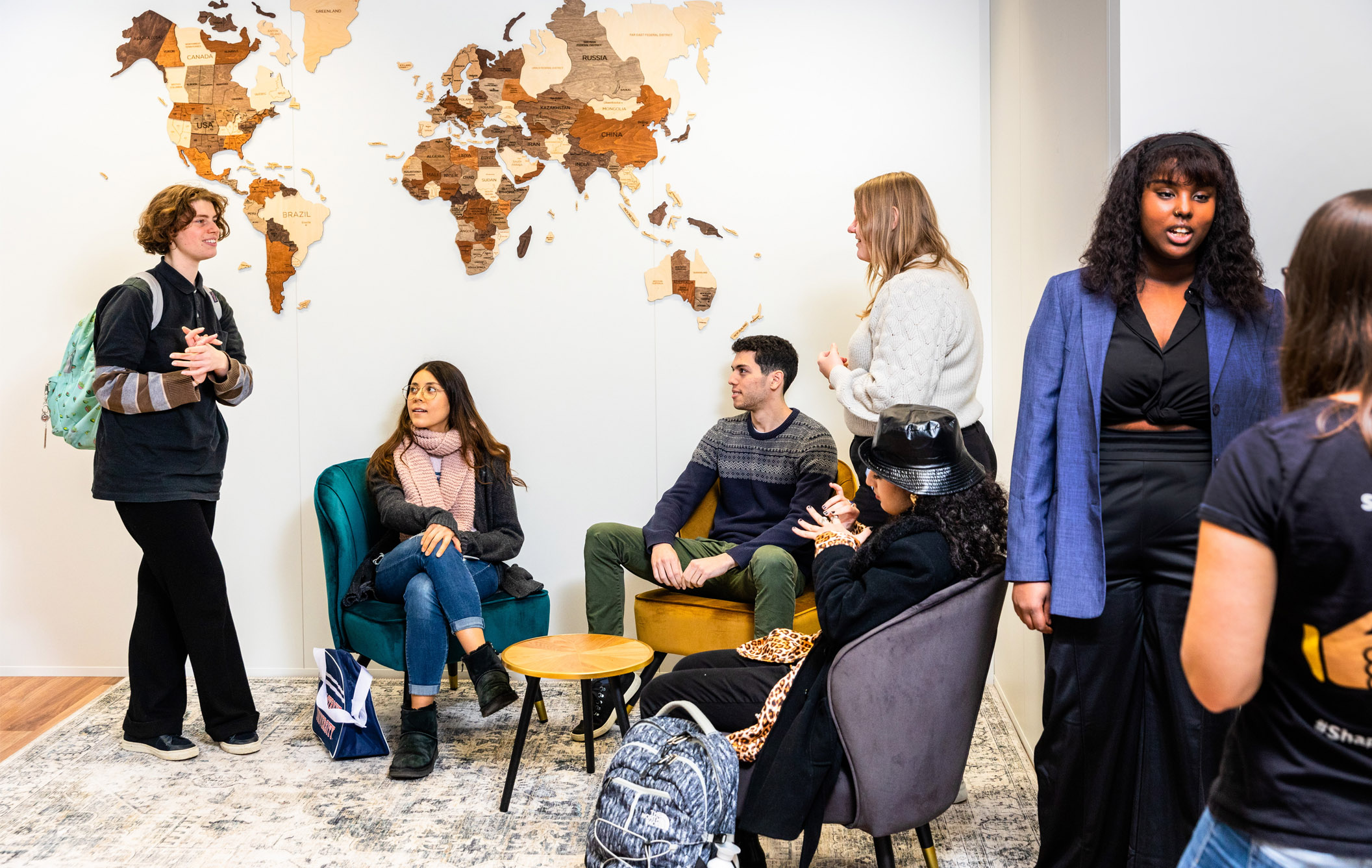
International study programmes
Many of the programmes at Maastricht University are taught in English, making them accessible to international students. Our programmes often have a distinctive international or European focus, and all programmes incorporate global issues and perspectives.
A truly European experience with YUFE
Maastricht University is a proud member of the Young Universities for the Future (YUFE) alliance, a collaboration of ten young European universities. This partnership allows our students to broaden their educational horizons by studying at partner institutions across Europe, focusing on their specific areas of interest. Through YUFE, students can enrich their education in the following ways:
- OpenYUFE: Students can enhance their degree with additional academic courses, language learning and professional skills, available online, onsite or in a blended formath.
- YUFE Minors: These are 30 ECTS modules that require physical mobility and include online courses from other YUFE universities, capped by a YUFE Challenge course—a hands-on project that connects students with local communities.
- BioYUFE: For life sciences students, BioYUFE offers a broad selection of elective courses across the YUFE network, the majority of which are online and in English.
- YUFE Bachelor: Set to launch in the 2025/26 academic year, the Urban Sustainability Studies bachelor's programme offers an interdisciplinary, open-curriculum approach with opportunities for minor studies at other YUFE universities abroad.
Each component of YUFE is designed to equip students with a richer, more diverse educational experience, preparing them for a globally interconnected world.
Joint and double degree programmes
We offer more than 15 joint and double degree programmes, where students split their studies between Maastricht University and one of our partner universities abroad.
These programmes are available at the bachelor’s, master’s and PhD levels. They are a key pillar to our internationalisation policy, promoting quality education, global collaboration and enhancing students' cross-border mobility and employability.
Examples include:
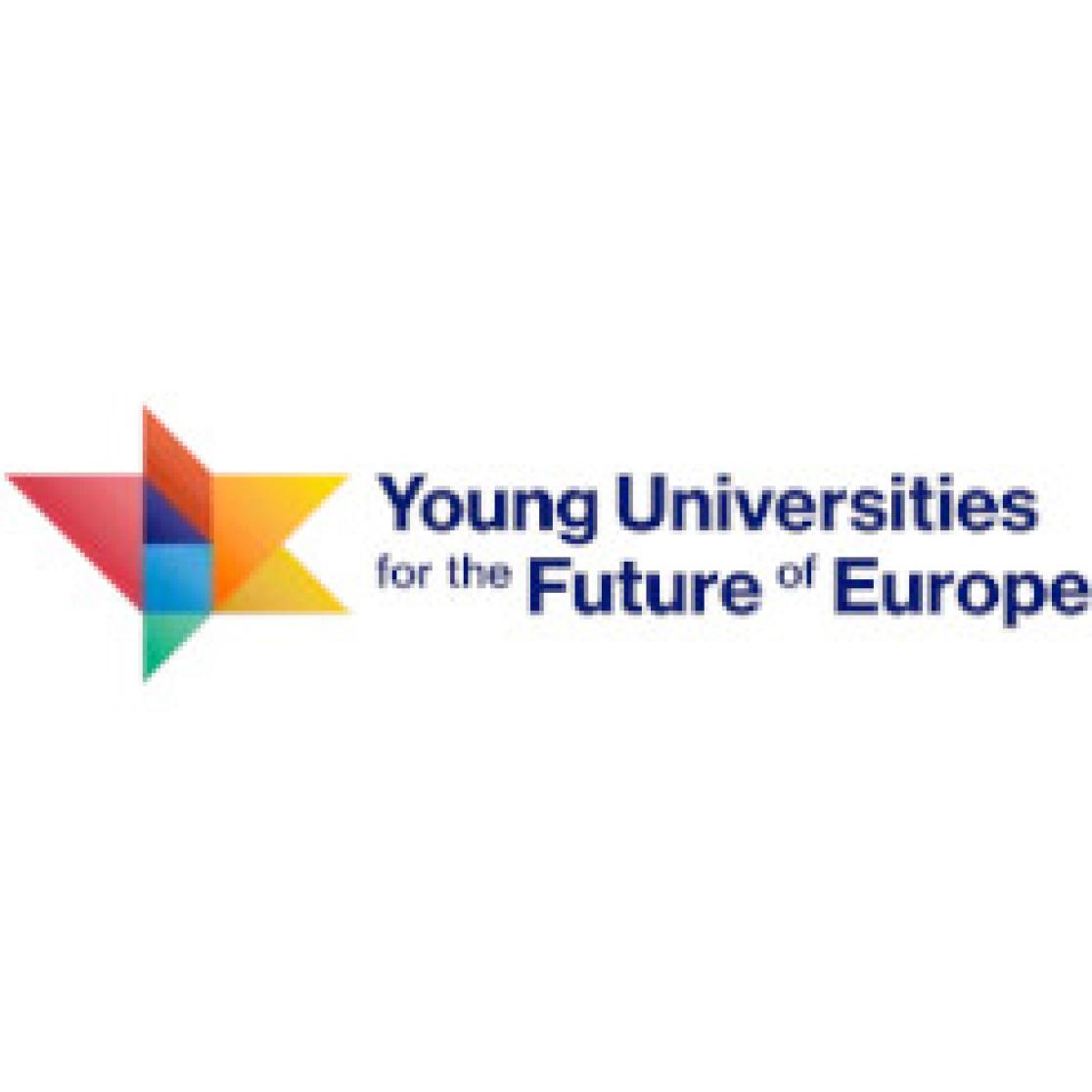
Center for European Studies
Each year, approximately 700 international students participate in Center for European Studies (CES) programmes, which range from three weeks to a full year. These programmes are dynamic and interactive, offering field trips, cultural weekends and study tours.
“What struck me most is that UM, and particularly the Law faculty, is very flexible and continues to adapt to the effects of globalisation and internationalisation. UM regularly creates new courses. Not many universities and law faculties have embraced so quickly and willingly the changes needed to maintain an enduring reputation on this international playing field.”
Sarah Wagner (Germany),
Master's in International Laws
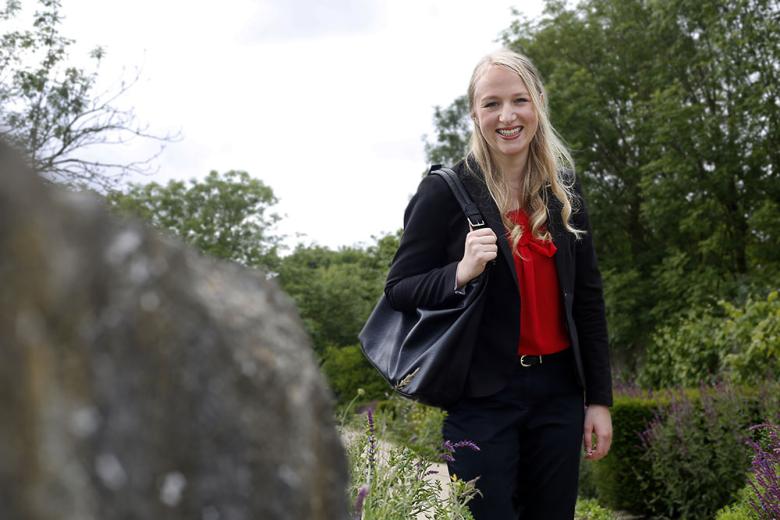
“I love interacting with foreign students, so I signed up as a buddy as part of UM’s International Student Ambassador Programme. The kick-off was held recently and I got to know many new people I would never have met otherwise. I was assigned three students, and I’ll be helping them to find their feet in Maastricht. One of them comes from Hong Kong, so I get to speak Cantonese with her.”
Gelly Tran (The Netherlands),
Bachelor's in Fiscal Economics
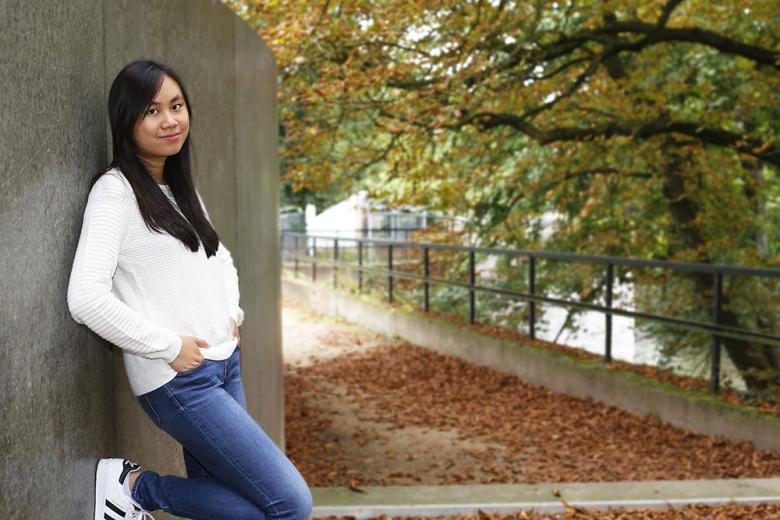
"I love to meet new people and see new places. Every year I try to stay for four weeks in a country I don’t know. I always learn something when I’m abroad. In Spain I learned how to build a chicken house. I would never think of doing that at home but it was a good experience. Although I don’t know yet in what job and where on the planet I will be working in ten years, I know for sure that I will be traveling."
Augustin Poncelet (Belgium),
Bachelor's at University College Venlo
